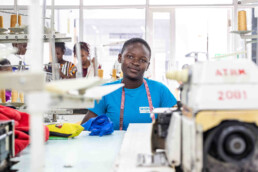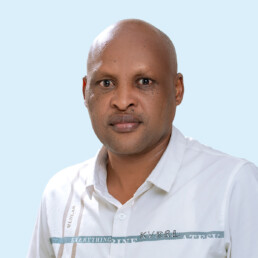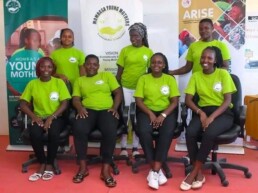Key Metrics
1.7
jobs are generated from every person trained on entrepreneurship by SHOFCO
9,963
women participated in SWEP activities in 2023
3,205
slum residents were placed in jobs and internships in 2023
Impact
SHOFCO’s Sustainable Livelihoods program has empowered thousands of individuals in Kenya’s informal settlements by providing them with vocational skills, business support, and job opportunities.
By specifically focusing on women and youth, we have helped break survival mode, enabling families to improve their living conditions and access better education and healthcare.
Many program participants have gone on to establish successful businesses, contributing to the economic vitality of their communities.
This model not only promotes individual financial independence but also builds long-term economic resilience for the community as a whole.
Situation
Kenya’s most vulnerable populations, especially those in informal settlements, struggle with high unemployment rates, where opportunities are limited, inconsistent, and low-paying. The income gap is also a pressing issue, with women in informal settlements earning 42% less than men. Without addressing these challenges, the country risks wasting significant human potential in an otherwise resource-rich economy.
Strategies
In 2017, SHOFCO launched sustainable livelihoods and job readiness initiatives, initially reaching 4,248 community members in Kibera and Mathare, to help communities transition from survival to planning for the future. Today, we are focused on six key strategies:
- We provide entrepreneurship training and job readiness programs—covering business plan development, financial management, CV and interview skills—to prepare individuals for meaningful employment or entrepreneurship.
- We partner with vocational institutions to provide access points for residents of informal settlements to attend skills-based training.
- Through the SHOFCO Women’s Empowerment Program (SWEP), we provide women with advanced machine operator training, tailoring classes, business skills, and income generation training. They also have access to shared spaces with tools and machinery, such as sewing machines, allowing them to produce goods, fulfill orders, and earn a sustainable income.
- We connect individuals with internships and job opportunities through partnerships with private enterprises and internships to build work experience.
- We strengthen women’s access to loans and savings through linkages to the SHOFCO SACCO, designed to serve the informal economy with financial products tailored for women.
- We offer professional training for women to start eco-friendly businesses, producing items like reusable bags and bamboo furniture.

Outcomes
- Individuals, particularly women and young people, gain the skills and knowledge needed to secure stable employment or start their own businesses.
- Vocational institutions and private enterprises are equipped to support, train, and hire talent from informal settlements.
- Economic resilience is built within communities, fostering long-term economic independence and stability.
What the Future Holds
We are focused on expanding SWEP services to reach 100,000 young people, connecting them to employment and entrepreneurship opportunities.
Key People

Julius Mutundu
Head of Sustainable Livelihoods



